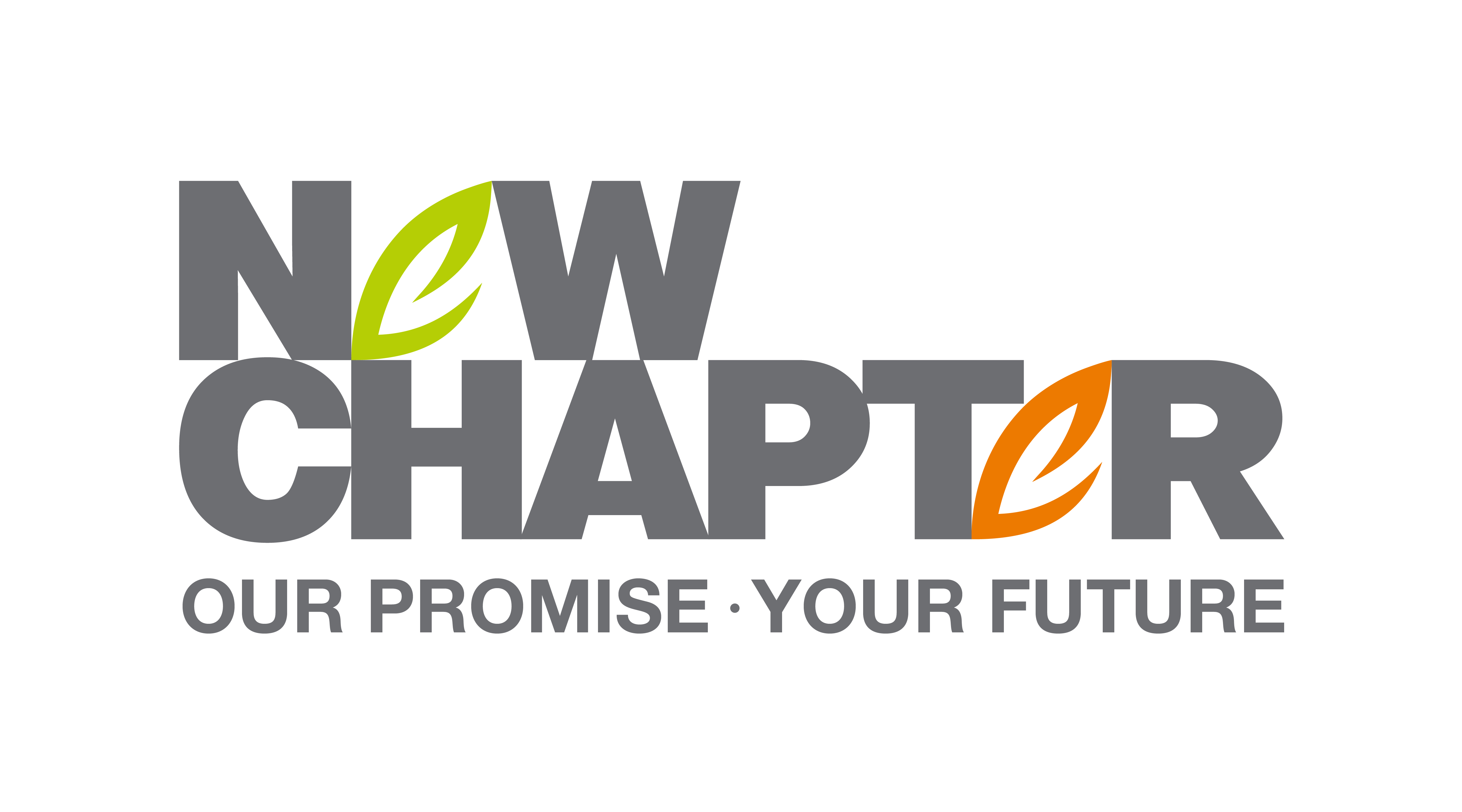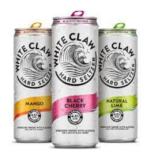Author: Catherine O'Donnell
-
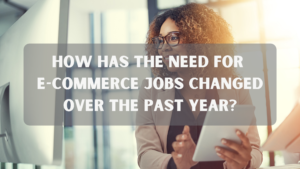
E-Commerce Industry – How has the Need...
Continue ReadingHow has the Need for E-Commerce Jobs Changed Over the Past Year?
Without a doubt it’s safe to say the E-commerce sector has gone through some major growth in the last decade. Consumers from practically every country today benefit from the advantages of online transactions thanks to the rapid development of tech, continuous digitalization of modern life and the internet. As the access and adoption of these elements expands at a rapid pace worldwide every year the number of digital buyers multiply. In 2020, nearly two billion people purchased products or services online, with global e-commerce sales exceeding 4.2 trillion dollars.
Whilst these factors alone have pushed the development of the E-commerce sector, we were then faced with the Covid-19 pandemic which has had unprecedented effects on the industry and the demand for jobs.

Although it began with empty shelves and manic consumers stockpiling enough toilet paper and beans to last a year, Covid has now completely solidified the need for e-commerce after lockdowns and isolating became our new ‘normal’. We moved hard and fast to digital retail, which was once just one in many options we had when it came to making a purchase. However, it soon became our primary method of shopping as the high street shut and our fear of germs (and people!) grew.
Statista’s research shows in 2020, e-retail sales accounted for 18% of all retail sales worldwide. By 2024 this figure is expected to reach 21.8%, the illustration of predicted growth suggests its likely job demand shall follow in a similar pattern too which for recruiters, means this is not just a one-year peak in the pandemic.
Lauren our senior E-commerce consultant here at New Chapter shared her thoughts on the changes in this sector…
“As a business, we have seen a huge uplift in digital roles, even from traditionally brick-and-mortar business that are branching out into the digital channel.”
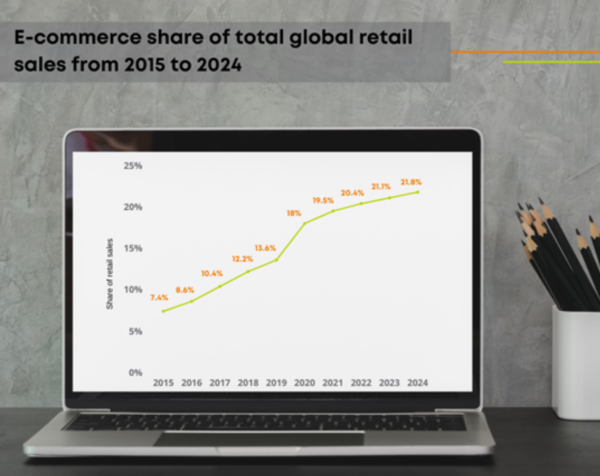
Another aid toward the job growth in E-commerce is the potential ‘death’ of the high street… the likes of Parcel hero (a leading courier service) have been one of many to identify and predict the potential death of the high street which they are forecasting for 2030. The high profile report which was discussed in parliament shares that ‘unless retailers developed an omnichannel approach that embraced both online and physical store sales, the High Street as we know it would reach a dead-end by 2030’.
“The rise of e-commerce has brought about many changes, most of which are happening behind the scenes, from supply chain to business & brands moving into D2C”
Whilst we have seen many companies develop their online presence over recent years, it’s clear we have further to go in this process with many yet to make the move from the high street online which will certainly continue providing a mass job feed in this sector.
In fact, a LinkedIn article shares the findings from their ‘Jobs on the rise’ report where by 9 out of the 15 countries listed feature a type of e-commerce role within their top 3. LinkedIn share the all too familiar joke of individuals who claimed their only true relationship during the pandemic was with their delivery driver… @Amazon being a particularly strong bond for many of us! As a company who hired 427,000 from January – October they are a great example of a rapidly expanding e-commerce business.
“I feel it’s a very exciting yet challenging time in this ever changing industry.”
According to LinkedIn research, the number of people hired for ecommerce-related jobs in the UK has increased by 143%. That’s a tremendous amount, and it’s only going to get bigger. The grocery sector in particular saw a significant increase in sales as more individuals turned to the internet for their shopping requirements.
Without being bias we’ve got to give credit to recruiters during this pandemic who have had to stay motivated and extremely adaptable whilst moving where they work, where they recruit, and whom they recruit (more diversity, with very different roles).
Many firms were unprepared for the effects and challenges lockdown brought us all. E-commerce offerings had to be rapidly adjusted and built upon and things were tough. However, it is now the time for reaping the rewards, it is clear irreversible changes have come from the pandemic with our shopping habits being altered… the only way for the ecommerce industry to go is up!
Are you interested in seeing what roles we have within the E-commerce sector?
Check them out below…
-

Are Benefits at Work Still Important?
Continue ReadingAre Benefits at Work Still Important?
Last week we posted a New Chapter poll on the satisfaction with your work perks… the results were very interesting and it inspired us to look further into it!
Flexible working went from being a benefit to the norm over night as the pandemic hit and WFH began. We found the extremes of ‘flexibility’ some companies are taking very interesting, allowing employees to work completely anywhere… even the beach!
Although that sounds like heaven do you think you need to be in a suitable environment to focus on work or can you take flexibility to its full potential and work easily anywhere?

For the past 10 years or so, the more contemporary firms have been decking out their businesses with company benefits, from pool tables, to snack cupboards, to nap stations and barbers, we’ve seen it all. These ‘benefits’ used to encourage both physical presence in the office and corporate loyalty, seem to be key to a modern workplace’s success and can be a huge, non-monetary selling point to potential candidates.
One study finds that 48% of employees would weigh company benefits and work perks in their decision to find their next job.
However, as a new post pandemic culture appears, after the need for our offices which held many of these benefits disappeared over night and remote working has changed the workforce, the demands from employees are changing as they come to the realization of what is actually important.
It’s not all bad though, as the change is helping companies better understand the needs of their teams with many now working on offering different benefits that matter more to them. With these largely centered around health, financial stability, and flexibility.
Cary Cooper the co-author of Flexible work, a book which examines flexible working through the lens of social science with a psychological perspective, says companies are progressively shifting toward an individualised, health-focused rewards culture. Cooper believes companies have a new understanding of the differing requirements from older and younger members of the workforce that is the heart of this transformation.
As the return to work emerges, companies are beginning to bring back some of the more novel benefits like Pringle who have ‘taco Tuesdays’ (we love this btw!). The question is though are these enough now to prevent employees leaving? Combined with the developed more meaningful benefits, we think so. But basic benefits alone just aren’t enough, with a ping pong table and some free snacks just not cutting it anymore.
It could be that those who fail to listen to the needs of their employees and identify the new corporate ‘practices’ now risk falling behind too.
SOME OF THE MOST SOUGHT AFTER PERKS IN 2021:
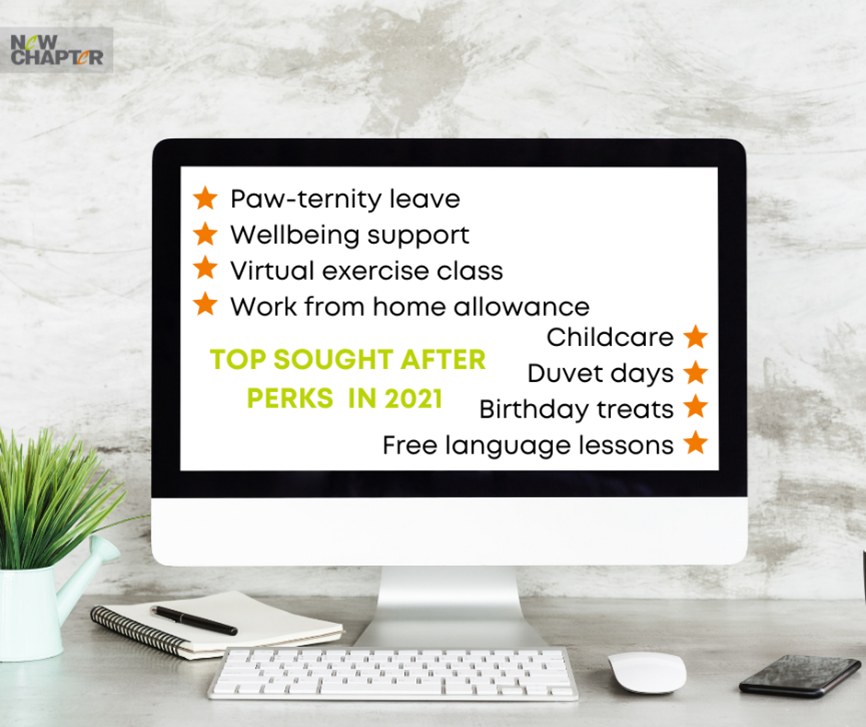
Offering job benefits not only helps engage, excite, and inspire staff, it can help attract top talent to the recruiting process as well, which is why it’s crucial to not only establish a positive company culture but communicate it too.
Our NC poll on LinkedIn provided us with some very interesting insights… its clear companies really aren’t quite hitting the standards expected with their not so perky perks!
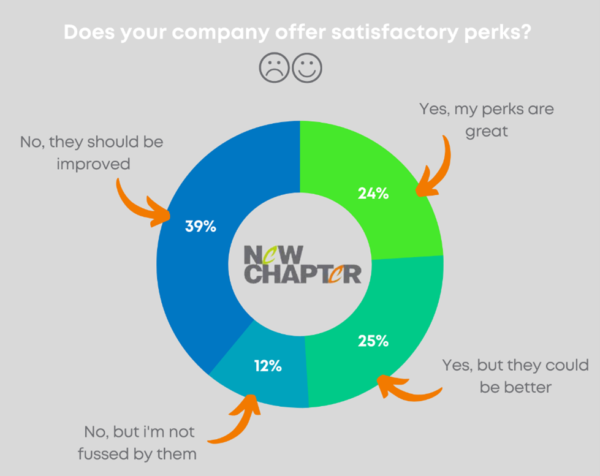
Although many people say they are satisfied with the benefits they are offered at work (49%) it seems over half are unhappy and unfortunately it’s something that often doesn’t become ‘worthy’ enough of speaking up about. We see perks at NC as motivators, relationship builders and tokens of appreciation… all things which can help employees exceed alone and, in a team… ultimately making them pretty important in our eyes!
What does New Chapter's Founder, Adrian, think about benefits at work?
“It’s the work our employees do that make us a good company and so we’ve always tried to recognise this with a wide variety of rewards and incentives. These can range from big incentive trips to places like Las Vegas to little gestures like free fruit in the office to encourage wellbeing! Moving to a home-based working means that we’ve had to re-think a lot of our original rewards as they are no longer relevant or so easy to provide. We’ve focused on rewards that help to maintain the culture of New Chapter and help to ensure relationships in the business continue to flourish. This has ranged from meals out to murder mystery events!
I feel that providing an environment where you are treated like an adult and trusted to do your job one of the best rewards any leader can provide their team. During the last 18 months many people have had to juggle lots of different things like home schooling or helping elderly relatives out with their shopping. Being flexible with start or finish times has made a very difficult time a bit easier for the team here at NC.
Business really need to think about changing the way they work their reward schemes. You need to think about what behaviour you are wanting to encourage and then build the reward around that. For us it’s always been about collaboration and team spirit, If you don’t have a ping pong table for people to hang out together and build relationships, how do you make that happen in a remote working world?”
With 51% of people unsatisfied or wanting more from the benefits their company offers here are some of our favorite quirky benefits companies are contributing – maybe this will be some good inspiration!
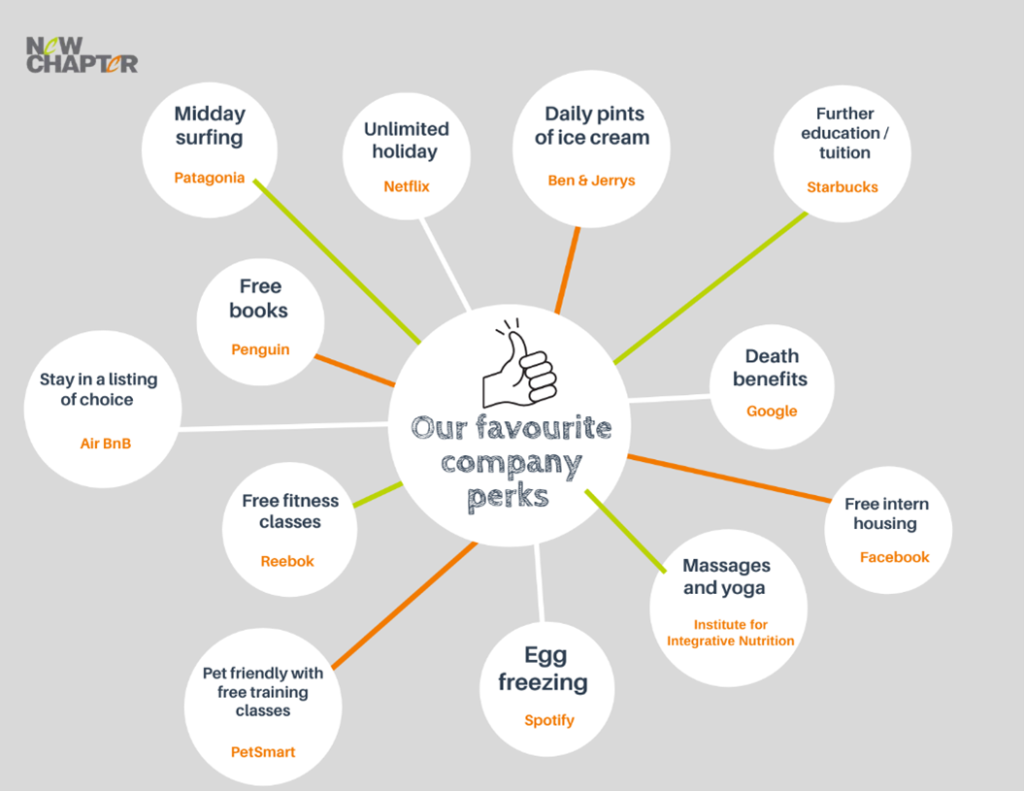
What one of our Consultants, Luke, thinks about the benefits here at New Chapter
The benefits are great at New Chapter, they have changed a bit since working from home as some are now not applicable, times have moved on and so should ‘perks’.
For me, moving forward, it would be great to have benefits which bring the social aspect out at work again, as working from home a lot means we have lost seeing and interacting with colleagues.
New Chapter are great with their incentives which I also think links closely with ‘benefits of a business’
Here at NC we really value our team and ensure we have benefits in place to reward and motivate everyone… here are some of our favorite times together!







If you’re feeling unsatisfied with what your company is offering or even just ready for a fresh start then have a look at our live vacancies, or get in touch with us below!
-

FMCG Heat Beating Products
Continue ReadingFMCG Heat Beating Products
Don’t sweat it, we’ve got you… how to enjoy the heat with our top everyday FMCG sunny essentials.
Temperatures are high, all windows are open, the fan is your best friend. Just like that we have no concerns about sitting around half-naked. Or cracking the drinks open from 11am and having ice cream for breakfast.
But hey, who’s complaining?!
It’s too cold, then it’s too hot… us Brits love a bit of weather chat. We thought it was time to share some of our favorite FMCG essentials for those scorcher days…
Block those wrinkles!
Our top FMCG SPF picks to suit everyone…
Probably up there in the top three essential items and not just for the vacay’s or hot days.
UVB rays = Burn
UVA rays = Ageing
It’s safe to say these rays are not our friend. They can be to blame for increased likelihood of pigmentation, fine lines and wrinkles. As well as your risk of skin cancer and more.
Many of us neglect the care of our face in the sun. Any good SPF will block these effects so we can confidently say that a facial SPF purchase is a lifelong investment. Keeping those wrinkles (and the rest) at bay… surely we all want that?!
In the past sun creams have been thick, tacky and leave that awful white hue. According to Garnier Ambre Solaire, 61% of women find SPF’s too greasy or sticky. However in recent years the facial SPF game has really been upped.
Innovative tech and improved formulas have led us to a vast market of SPF products. Thses do the job and feel good too… so here are our FMCG top picks:
1.BEST SPF FOR MAKEUP WEARERS
Applying SPF multiple times a day can be a pain for the makeup wearers of the world. Spending your lunch break taking off your makeup to get your SPF topped up… no thank you! Luckily many brands have developed some products to solve this issue, from face mists to setting powders.
Kate Somerville’s SPF 50 makeup setting spray is a top seller on Space NK. It’ formulated with hyaluronic acid, to hydrate the skin and protect it from sun damage.
SPF 50 makeup setting spray, Kate Somerville at Space NK, £34
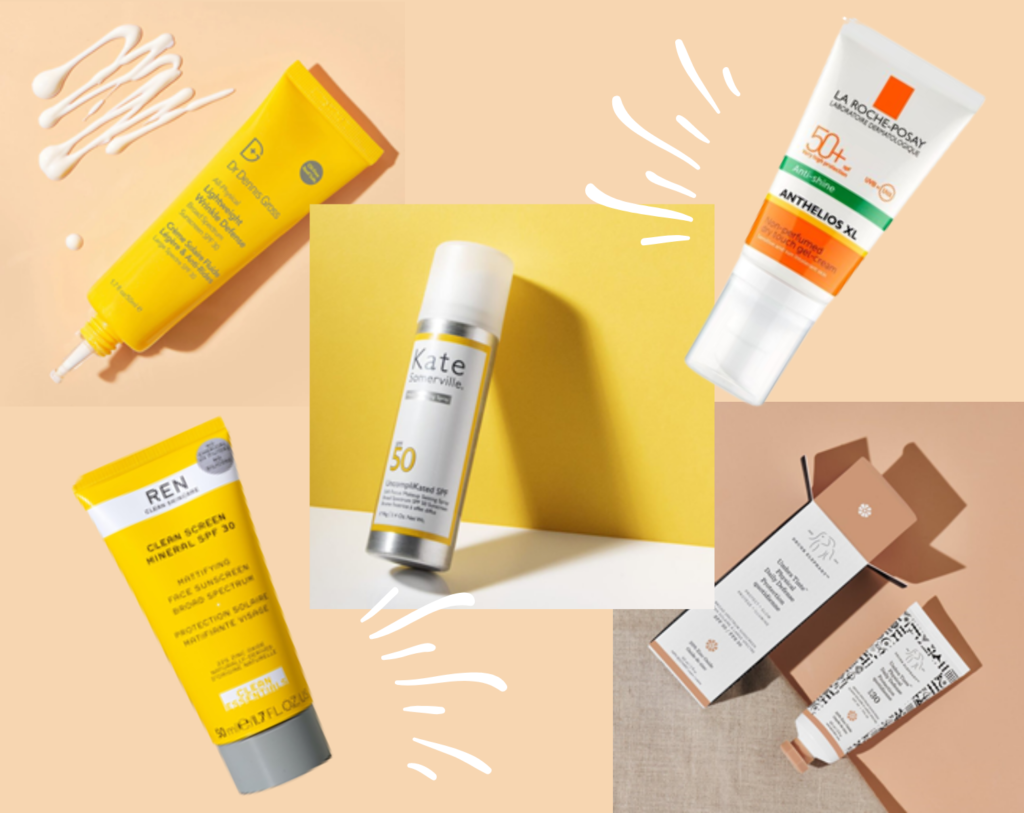
Our top SPF moisturisers for those sunnier days 2. Best SPF for acne prone skin
For those individuals who suffer with skin issues finding an SPF can be a daunting game. Especially with the added fear of triggering a breakout eruption. Loading on thick, heavy creams can contribute to breakouts. The trick is to look out for formulas which are oil-free, packed with natural minerals. Or labelled non-comedogenic, which means they won’t clog your pores.
The Dr Dennis Gross lightweight SPF is a favourite. For those who struggle with skin issues as an oil free, hydrating, antioxidant-rich formula formula.
Light weight wrinkle defense SPF 30, Dr Dennis Gross at Cult Beauty, £46
Clean to the skin and clean to the planet Ren is a renowned brand for its natural, eco friendly skincare. With sustainability at the heart of what they do, products are made with the planet in mind. Which amongst other aspects is working toward their pledge to become Zero Waste by 2021. Their packaging will be 100% recycled, recyclable and reusable.
Always cruelty free, with an expanding vegan portfolio it’s ideal for those looking for gentle but effective skin protection. The mineral based cream uses zinc oxide as a protective UV barrier. The benefits of both passion fruit, which has antioxidant characteristics, and rice starch. Which promotes a fresh, shine-free appearance and a balanced complexion.
The extra bonus is this creams mattifying effects, helping you wave goodbye to napkin patting, powder blotting, humid summer days!
4. BEST SPF FOR SUNSCREEN HATERS
As some brands turn away from creams, there is a development of the gel / water based SPF’s. These are perfect for those who can’t bare a regular SPF. Whether it be the feel or simply just refusing to put a cream on.
One website states that even on sunny days, 31% of men are likely not to use any sun protection. In comparison to just 15% of women who would go without… maybe this ones for you men!
In addition the La Roche-Posay Anti-shine sun cream gel is ideal for oily skin that’s prone to sensitivity, sun-intolerance or prickly-heat.
Anti-shine sun cream gel SPF 50, La Roche-Posay at Boots, £13.50
5. THE TAN WORSHIPERS
For those people who wouldn’t dare sit in the shade incase they lose a single minute of tanning time. The drunk elephant umbra tinte gives you that extra touch to the tan (some might call it cheating.) With it’s tinted SPF formula, a sunscreen that is 100% free of essential oils, silicones, fragrance and packed with anti oxidants.
Get that extra glow and fake it ‘till you make it (whilst staying protected)!
Umbra tinte physical daily defense SPF 30, Drunk Elephant at Boots, £36
Cooling quenchers…
You cant go wrong with a nice cold beverage on a hot day. Obviously on the forehead for a minute or two first – key cool down technique. Here’s a variety of FMCG thirst quenchers perfect for the heat…
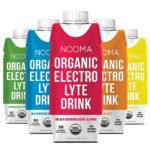
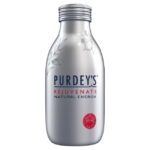
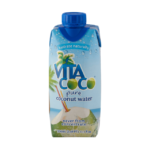

ELECTROLYTE RICH DRINKS
Sweating – yes we need to talk about this – one of those downsides to the hot weather the majority of us can’t escape. As the body produces sweat to cool down, we lose electrolytes. It’s super essential to replenish these with many foods and drinks high in electrolytes. Including coconut water, birch water, bananas, spinach, kale, and lime. All of which are also cooling Ayurvedic foods.
VITAMIN RICH DRINKS
Whilst the sun is providing us with plenty of vitamin D it’s important to store up on all the rest too. Vitamins have many benefits but energy is particularly useful to beat that sluggish feeling!
Purdey’s Rejuvenate Natural Energy Drink at Sainsburys, £1.35
BACK TO BASICS, OUR FAVE FMCG SUMMER DRINKS…
Rosemary, cucumber & lemon water
BEAUTY PICKS
With so many of us now working from home and missing out on that heavenly office air con. The bright red faced zoom calls are all too real… here’s some of our favorite FMCG beauty products to help you out:
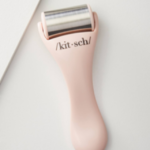
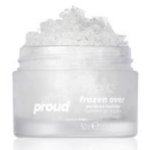
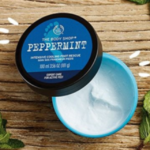

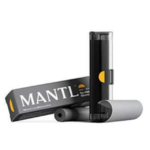

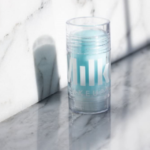
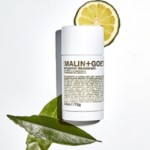
This little device is seen to have a lot of support by advocates who recognize the benefits of ice rolling. As the new ‘at-home’ version of the high tech procedures hitting the mainstream such as cryotherapy. From defining cheekbones to boosting radiance. These ice rollers help to restore brightness and support optimum cell function. This happens by increasing circulation and bringing blood to the skin’s surface.
Always have this handy in the freezer for a five minute roll to minimize puffiness and redness!
Gel to Ice Moisturiser
A gel-to-ice moisturizer says it all for all for us!
Another one for the freezer that forms in a slush like texture to instantly cool, de-puff and improve circulation. Lemon extract works to brighten and treat hyperpigmentation. With the high level of hyaluronic acid making this moisturizer ideal for those red-face days in the sun.
Frozen Over Gel-to-ice moisturiser, Skin Proud by Lottie London on ASOS, £16.95
Peppermint intensive cooling foot rescue
Cant forget the feet in the heat, give them the extra cool and hydration refresh with the Body Shop foot rescue. This tingly little tub of goodness is enriched with cooling peppermint essential oil. Our formula helps to invigorate and revitalise tired feet.
Peppermint intensive cooling foot rescue, The body shop, £9.50
Gel Bead Therapy Mask
Fifteen minutes of use immediately revitalises your skin while improving dark circles, puffiness and sagging skin. Store in the fridge or freezer for a cool chill out or heat it up in water. Probably not recommended on a day of 28 degrees!
THE BEST NOVELTY ICE CUBE TRAYS TO LIVEN UP YOUR DRINK
Spice up your summer drinks that extra bit more with these funky and boujie ice cubes:
Sphere ice molds, Oliver Bonas, £15
Citrus fruit ice cube straws, amazon, £17.35
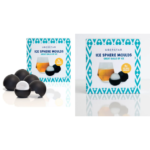


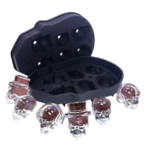
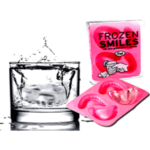
We believe in helping people and companies realise their potential and achieve their future ambitions. This important belief, coupled with an underlying commitment to service excellence. Makes us truly unique within the recruitment industry.
If you would like to have a conversation with one of our specialist FMCG Consultants, click the button below…
-

Do we Need Incentives to go Back...
Continue ReadingDo we need incentives to go back to the office?
Are you considering working from home being a permanent reality? Would you need incentives to return to the office? If you are, you’re part of 36% who want to spend most of their time working from home in the future. This data was given by the UK’s Office for National Statistics. Also showed that nearly 40% of businesses expect 75% of their workforce to return to the workplace. It’s clear a gap is emerging between what employers hope and what employees want.
Employers are now dedicating time to brainstorm ways to encourage people to go back to the office. With WFH no longer seen as a perk, it’s time for them to think outside of the box.
At the moment, incentives to return to the workplace, fall into five broad categories.

Hygiene Incentives
Companies have been racing to make sure workplaces are sanitary and safe. This is to ensure employees definitely turn up to work. “What we can’t do is open up our offices, invite our employees back and then provide a suboptimal experience,” says Ken Raisbeck, head of occupier advisory for CBRE, a real estate services company.
Structure
Many businesses had pre-pandemic plans to create more friendly office designs. Businesses are looking to provide comfortable social spaces where colleagues can meet to collaborate in person. With private areas; technology to enable discussions with remote-working colleagues or clients; and more flexible schedules to avoid busy commutes. There is a massive demand from young staff to return to the office.
Connection
Many employers have started reminding staff of the importance of in-person creativity and collaboration. “I know I’m not alone in missing the hum of activity, the energy, creativity and collaboration of our in-person meetings and the sense of community we’ve all built,” Apple chief executive Tim Cook said. This reportedly was met resistance from staff, who want greater flexibility.
Food perks
Tangible perks on offer include free coffee and food. Compass, which provides corporate catering, says three large investment banks are now offering complimentary food. Where they have in-office gyms or swimming pools, companies are cautiously reopening them.
Raisbeck of CBRE says landlords, employers, local businesses and local authorities are also starting to organise “placemaking” with Covid-secure events. Such as live music gigs in shared outdoor spaces or reception areas.
One obvious challenge, he says, is to “flatten out” the midweek peak and encourage commute on Mondays and Fridays. These will be put to the test once lockdown lifts depending on post-pandemic budgets.
Megan Lyon, chief strategy officer at Herman Miller, warns “Once you offer free food or incentives, it’s hard to [take] them back”.
Cash Incentives
Few companies are paying bonuses to staff to use the office again. There are some companies that are offering giftcards and vouchers.
CoStar, a real estate data company, made headlines with its decision in April to randomly reward one US employee $10,000 every day. This was provided they were vaccinated and working in the office at least one day a week. The cash handouts have now ended, but a trip to Barbados and a Tesla are still on offer. The primary aim of CoStar’s prize-giving was to encourage staff to be vaccinated. But the proportion of workers in its US offices has jumped from 11% in April to 56% in the June.
Facebook said all employees could work remotely after the pandemic. However, their salaries would be re-adjusted if they moved to lower-cost regions. That is a luxury that may not be allowed to other employers. Some of which are having to offer perks simply to fill vacancies in a tight labour market.
-

Technical & NPD: Monthly Sector Spotlight
Continue ReadingMonthly Sector Spotlight: Technical & NPD
Welcome back to New Chapter’s Monthly Sector Spotlight! Each month we take a deep dive into each of the sectors we recruit into at New Chapter. This month we sat down with Joe who recruits into the Technical & NPD space.

Here he is!
Joe is a Senior Recruitment Consultant here at New Chapter. He focuses mainly on recruiting into the NPD and Technical space in the Food and Drinks industry.
Joe has amassed a wealth of experience in NPD & Technical space after 9 years recruiting for some of the biggest food and drinks brands in the UK.
Food! And Drinks! What’s not to be interesting?
The people; Working with people are at the forefront of their sector, creating, developing, keeping food safe and consistently on our plates.
Also the fact you can be dealing with people who are creating food that you will see every day.
I recruit into NPP (New Product Development) and Technical or Operations positions.
The main changes would be the loss to the hospitality sector, with lockdowns over the last year. Also Brexit has created various challenges with supply chain across Europe. Although these issues should return to normal practise towards the back end of this year.
Other changes would be more consumer led, as people are becoming more conscious of where are food is coming from and what is doing to our bodies. This has resulted in growth within Non-alcohol or low alcohol drinks (30% last year), vegan and vegetarian products.
In the wake of food and drink documentaries such as ‘Game Changers and ‘Seaspiracy’, consumers are demanding more ethical food and transparency for where food has come from leading to more pressure on suppliers and supermarkets to be open with their practises.
NPD has taken a small dip during the COVID pandemic and there has been an increase in need for Technical staff ensuring food safety however there has been no major changes over recent years just constant growth.
The technical & NPD industry will definitely continue to grow as people will always need to eat.
-
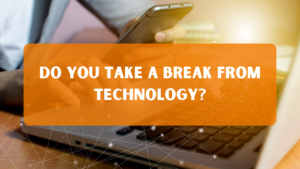
Do You Take a Break From Technology?
Continue ReadingDo You Take a Break From Technology?
Have you heard of ‘blue sky time’? It is a phenomenon where you dedicate a certain amount of time to being off your phone and away from technology.
Taking a break from technology can benefit individuals massively. From increasing your productivity, reducing stress, and increasing your physical health. Research suggests that taking a break is vitally for a healthy lifestyle.

However, taking some blue-sky time has become virtually impossible for many during lockdown. Data shows that individual usage of WhatsApp, Slack, Twitter, Instagram, etc. is now a near-constant activity.
Low levels of blue-sky time have also impacted people’s professional careers. Having your work computer at home has increased employee anxiety over what could be waiting your inbox. This is because they have been easily accessible 24/7 for over a year now.

It is clear that the freedom of WFH has caused a blurring of the lines between work and leisure time.
For some, this blurred line is not a hinderance. Everyone works in different ways. One group of employees may prefer having 24/7 access to keep their responsibilities under control. Whereas another group may need time to switch off to re-charge.
Another argument could be that we all have autonomy over whether to respond or read e-mails that are sent to us outside work hours. Should we be creating our own rules, tailored to our individual preferences and working styles?
Some companies have taken steps to create a blanket rule surrounding this topic.
In 2014, car company Daimler generated reams of positive press. By creating a system that automatically deleted e-mails while employees were on holiday.
The system ‘Mail on Holiday’ is still in place as an opt in system. Emails send while workers are away are deleted. The sender then receives a reply offering an alternative contact for urgent requests. This means employees cannot check their emails and do not return to thousands of unread emails.
With the system being ‘opt in’ it gives employees the choice. While this system may work for some, it would not work for everyone. Especially when you cannot predict the importance of emails sent to you while you are away.
Governments are discussing similar ideas to this. Ireland have even introduced the “right to disconnect” that means employees shouldn’t have to work outside normal hours. The code, published by the country’s Workplace Relations Commission, includes the “duty to respect another person’s tight to disconnect.” For example, by not sending emails outside work hours.
But if emails are as addictive as social media. Is a government policy going to make any difference to our own personal habits?
Perhaps the solution to achieving a digital disconnect is a return to the office.
Returning to the office will bring more structure to our days. This will hopefully bring back the normality of emails either being sent or scheduled to be sent within working hours.
-
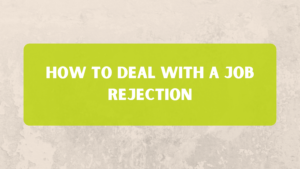
How To Deal With a Job Rejection
Continue ReadingHow to Deal With a Job Rejection
Picture this, the job search is on. You have had a few interviews with companies you quite like, and your experience is a good fit for the role. But then all of a sudden, you experience job rejection.

Firstly, you’re not on your own in experiencing rejection after an interview. Even if you were feeling confident, it doesn’t mean that a rejection hurts any less. Your confidence may take a knock, especially if your job search was positive up until this point. All these feelings are perfectly valid and normal.
But we are here to tell you that this rejection is just a stumbling block on your way to landing your dream role. Believe in yourself and your abilities!
It is important to remember that the way you handle rejection is just as important as the skills on your CV. Allowing rejection to knock your confidence and make you doubt your abilities, will negativley effect your interview performance.
If you are struggling with a recent job rejection, we have put all our decades of recruitment experience together. We can offer you advice on how best to deal with the emotions you are feeling right now. You can springboard from these emotions into a positive mindset to start searching again.
1. It’s in your human nature to be affected by rejection
Rejection weighs heavily on our minds because our brains are programmed to focus more on the negative rather than positive. This hard-wiring is why a rejection can feel completely disheartening to us. The reality is that you may be exaggerating the reasons behind why you were rejected from a role. This is what is causing you to feel so unmotivated to carry on your job search.
If you were rejected from the role because you are simply not the correct fit for the role. We advise that you take a step back and realise that you may be overgeneralising the situation. Just because you have been told you are not right for one job does not mean you won’t be right for others.
In reality, you are still a strong candidate and you should remember that one rejection doesn’t define you. Take this stage in your job-seeking process as an opportunity to start fresh.
2. A rejection is all part of the process
It’s a hard fact that facing a rejection is all part of the job application process. You’re not going to get every job that you apply for, no one does! Coming to grips with a rejection is really important in building your emotional resilience.
Plus, a job rejection is a great opportunity to start thinking outside the box. If you move away from the classic structure of job – apply – outcome you will open your mind to a more informal approach to a job hunt. This could open many doors for you as a job seeker. For example, connecting with a company you would like to work with either through an e-mail, a direct message on Linkedin, etc. Could open up a conversation with an employer who isn’t actively recruiting at the moment, but may be in the future. And who would be on the top of their recruitment list? YOU!
3. Identify learnings and build a personal development plan
Think about feedback from past rejections, and from appraisals and the like. Are there any recurring themes? What should your development priorities be?
Make a note of any weaknesses or issues that you can do something about. Use these as a focus for the way you approach your preparation next time.
Turn these requirements into a plan. What can you do to fix the gaps in your performance? Depending on the issue, there may be some training or informal coaching you can undertake to help you develop. Or it may simply be a case of working harder on some of your answers, and finding someone to practise them with.
4. Build resilience
In today’s rapidly changing workplace. Technologies are accelerating and companies transforming to develop a resilient mindset for long-term success.
See each setback as a challenge to grow both your self-understanding and your ability to bounce back. Overcoming obstacles on your career path will increase your chances of landing the right role. So make a point of staying constructive, and do all you can to learn from the experience.
After all, getting turned down from a job happens to everyone. The most important thing is what you learn from the experience.
Fancy a chat with one of our specialist consultants? Click the button below! We look forward to hearing from you.
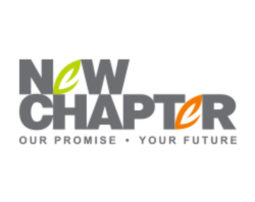
-
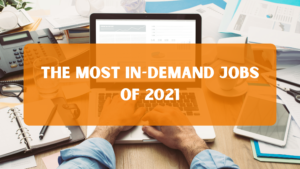
The Most in-Demand Jobs FMCG & Retail
Continue ReadingThe Most in-Demand UK FMCG Jobs 2021
Recruiters are now reporting the strongest rebound in permanent FMCG hiring for six years in March as businesses prepare for the slow lifting of lockdown measures. Recruiters are also reporting accelerated growth in temporary billings, and the sharpest increase in overall vacancies since 2018.

This information comes from a survey complied by IHS Markit for advisory firm KPMG and the Recruitment & Employment Confederation, and its findings suggest one of the strongest signals so far that businesses are becoming upbeat enough to take on new staff.
In addition to this, data from The Office of National Statistics suggest online job advertisements have now risen to levels seen on the eve of the first lockdown. These are very reassuring signals that the UK job market may return to pre-pandemic levels; with a sustained recovery in hiring being crucial if the UK is to rebound from the pandemic without any economic scarring.
Key industries and jobs in FMCG that are under increasing demand
Findings from the KPMG/ REC survey also suggested key industries and jobs that are under increasing demand. Included in this are hospitality jobs, care jobs, and the IT sector.
In this article we will identify and discuss jobs within FMCG & Retail that are in high demand. From both KPMG & REC’s survey findings and New Chapter’s observations of the current job market.
1. E-Commerce
The shift to digital was most certainly escalated by the pandemic and lockdown measures put in place. With all brick-and-mortar retail stores having to close their doors to the public. A major element in their survival has been to increase and improve their online presence through their online stores.
Some stores have not survived this transition period, but some have taken on the challenge. With running an online business and being able to increase reach and profits.
Hiring for e-commerce roles has rocketed by 143 per cent in the last year compared to the previous year. LinkedIn’s latest findings show that the current hotspots for e-commerce roles are Birmingham, Northampton, Manchester and Leicester. With roles that are in demand ranging from Marketing roles, ops and warehouse roles.
2. Digital Content
Working in digital content creation is great for businesses at the moment. This is because the role can be done anywhere, you do not have to be office based.
The quality of digital content has always been important, but recently the amount of effective digital content needed has skyrocketed. This is as a result of the increasing use of Ecommerce platforms for trading. With the added use of influencers on social media, and general persuasive copy that is needed across digital platforms.
In the past year, LinkedIn has seen 118 per cent increase in the number of jobs posted in this line of work.
3. Operations Management
An operations manager has a broad remit of responsibilities, and this will depend on the industry and employer. Overall an operations manager is in charge of the smooth running of an organisation. Areas they cover can be split into people, core operations, budgets, delivery and strategy. Successfully managing these five core areas will result in an efficient company.
The top companies hiring for operations managers are Network Rail, Tik Tok, KPMG, Vodafone and Asda.
4. Business Analyst
Overall, the job of a business analyst is to help an organisation plan for the future. This involves understanding where the company is currently at, what its future needs may be and then creating solutions. This typically relates to IT and software solutions. It may include other things like staffing and budgets.
The top companies hiring analysts are; Betway Group, The Scottish Government, Save the Children, NRG and Kellogg Company.
5. Social Media and Digital Marketing
Standing out online is tough and businesses up and down the country are on the lookout for experts in social media and marketing. They help drive up sales and ensure their products or services appeal to as many as possible.
There was an increase in demand for roles such as ‘Growth Hacker’, ‘Growth Specialist’, ‘Marketing Consultant’, ‘Social Media Manager’ and ‘Social Media Coordinator’ in recent months. All of which focus on innovative alternatives to traditional marketing.
Belfast, London and Manchester are all hotspots for jobs in this sector at the moment.
Contact Us!
We recruit many of these roles and more for the FMCG & Retail industries within the UK and Internationally. If you are looking for a role in these fields, click the link below to match your CV to any opportunities we have.
Or are you an FMCG & Retail company looking to expand but do not know where to start? Arrange a chat with one of our specialist consultants below. We love talking everything FMCG & Retail, so would be more than happy to chat with you.
-

Drinks Industry: Monthly Sector Spotlight
Continue ReadingMonthly Sector Spotlight: The Drinks Industry
Welcome back to New Chapter Monthly Sector Spotlights!
Each month we are talking to one Consultant from each industry we recruit for here at New Chapter. This month it’s time for our Drinks Consultant Emma to showcase her work in the Drinks industry. We can understand what the Drinks market is looking like at the moment.

Meet Emma!
Emma is the Drinks Industry Divisional Manager here at new Chapter. She has been a vital component to the business for 10 years now. In that time she has made a big name for herself within the Drinks Industry.
Working with brands such as Della Vite, Real Kombucha, Laurent-Perrier, and more. Emma has built up a vast range of experience with premium, non-premium, alcoholic, and non-alcoholic beverages.
So, without further ado, click on the green questions to find out what’s going on in the Drinks industry!
How much it evolves and how there are constantly new trends that are often started by smaller brands that then blow up into a huge new category that the big drinks companies then try to copy.
Take Seedlip as an example. No one was drinking or talking about no/low before those guys showed up and now it’s a huge growing category that’s completely changed the way a lot of us drink. I just find it fascinating.
Sales, Marketing and Operations Managers.
Covid has hit the drinks industry hard, mainly due to the hospitality industry being closed for such a long time. It’s been really interesting to see how brands have evolved quickly in this time though, to offering at home cocktail kits and subscription services and brands investing in their ecomm and D2C channels generally.
From a recruitment perspective, it has been really great to see how many have adapted to interviewing over Teams or Zoom and perhaps meeting for a socially distanced walk as a final stage. This has meant that processes have actually moved much quicker and candidates have even met more of the team as they were able to get people in one place much easier now that everyone is WFH.
Yes, candidates with Ecomm, digital and grocery experience are in high demand!

I think the worlds of no and low is going to continue to evolve and hopefully become a lot more accessible for people to have interesting options if they aren’t drinking.
I’m also really interested to see how English wine evolves to becoming more mainstream. It’s been a quietly growing category for some time now but what with Brexit and/ or people just wanting to consume home grown produce, I think there could be some really exciting growth there.
We hope you have enjoyed this month’s sector spotlight!
If you have any questions regarding your recruitment, or you just fancy a chat about what’s going on in the industry at the moment, give us a call!
-
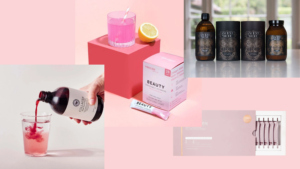
FMCG : Should I Start Taking Collagen...
Continue ReadingFMCG: Should I Start Taking Collagen Supplements?
The FMCG industry is vast with new products being released all the time, especially supplements like collagen.
What is collagen?
Collagen is the most plentiful protein in your body, accounting for about 1/3 of its protein consumption.
The word collagen in fact comes from the Greek word for glue, ‘kólla’, because collagen is the “glue” that holds all the major building blocks of our body together.
There is not just one type there are 16!
Different types do different things for your body. One type provides structure to your skin, bones, tendons and teeth, another cushions your joints, another supports the structure of muscles and organs, and another helps with filtration and is found in layers of the skin.
Unfortunately, as we age the levels of collagen in our body decease. This leads to appearance changes associated with old age – such as wrinkles and sagging.
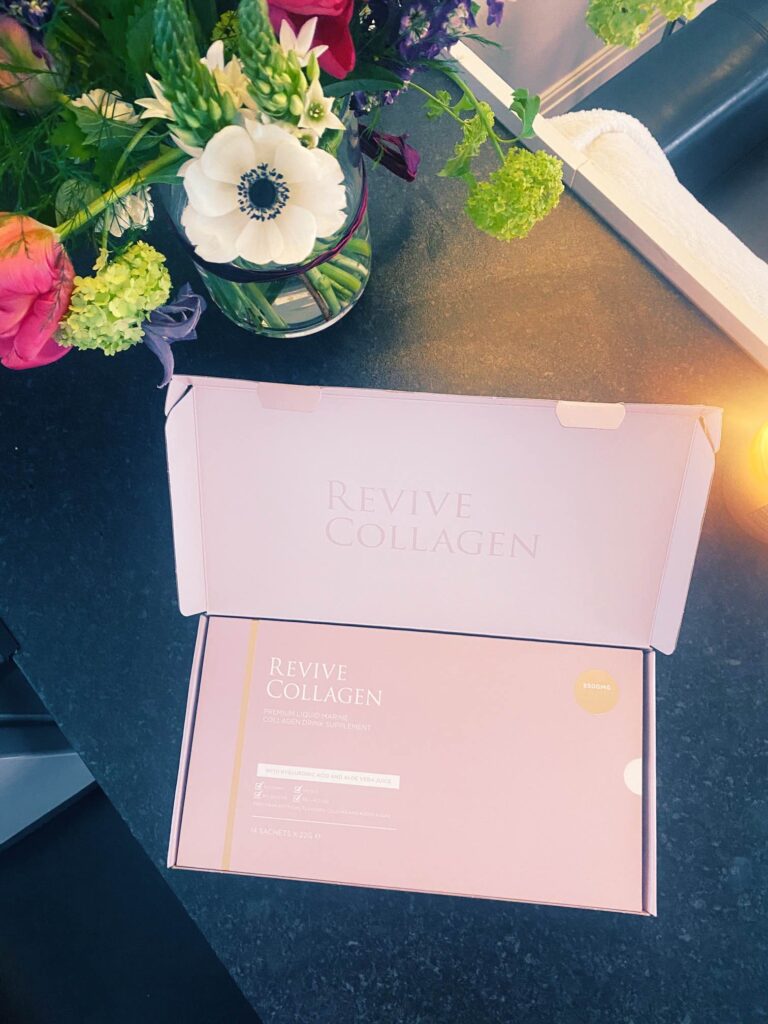

How can you encourage your body to produce more collagen?
Try and squeeze in as many of these nutrients into your daily routine to maximise the chances:
Vitamin C (citrus fruits, bell peppers, and strawberries)
Proline (egg whites, wheat germ, dairy, cabbage, asparagus, and mushrooms)
Glycine (pork skin, chicken skin, and gelatine)
Copper (organ meats, sesame seeds, coca powder, cashews and lentils)
What can damage the collagen in my body?
- Eating too much sugar and carbs! Sugar interferes with it’s ability to repair itself.
- Getting too much sunshine! Ultraviolet radiation can reduce production. Avoid excessive time on the sun beds!
- Smoking reduces your production because it can impair wound healing and lead to wrinkles.

How can I guarantee a higher level of collagen in my body?
Take collagen supplements!
Supplements have become extremely popular in recent years, with many daily forms available on the market.
Taking collagen in a supplement form has been found to be much easier for you body to absorb because supplements are hydrolysed – meaning it has been broken down.
What are the benefits of taking collagen supplements?
Collagen supplements are the biggest and most popular beauty supplement of 2021. These supplements can help make up for the loss or help boost the production. These supplements are most commonly found in powder or drink form, very rarely in a capsule form. These are the ways that it is best absorbed into the body.
Can improve your skin’s health
It is a major component of your skin. Several studies have shown that collagen peptides or supplements may help slow the aging of your skin by reducing wrinkles and dryness.
Helps relieve joint pain
Some studies have shown that taking these supplements may help improve symptoms of osteoarthritis and reduce joint pain overall.
Could prevent bone loss
Just as the collagen in your body deteriorates as you age, so does bone mass. This may lead to conditions like osteoporosis, which is characterized by low bone density and linked to a higher risk of bone fractures.
Studies have shown that taking these supplements may have certain effects in the body that help inhibit the bone breakdown that leads to osteoporosis.
Could boost muscle mass
Studies suggest it can help boost muscle mass in people with sarcopenia, the loss of muscle mass that happens with age.
Promotes heart health
In one study, 31 healthy adults took 16 grams of collagen daily for 6 months. By the end, they had experienced a significant reduction in measures of artery stiffness, compared with before they started taking the supplement.
So, what collagen supplement products are out there?
In the past year the amount of supplement products available to the consumer has skyrocketed (link). The amount of choice on offer is bound to cause confusion over which supplement is the best for you. We have reviewed 5 of the top collagen supplements available in the UK at the moment.

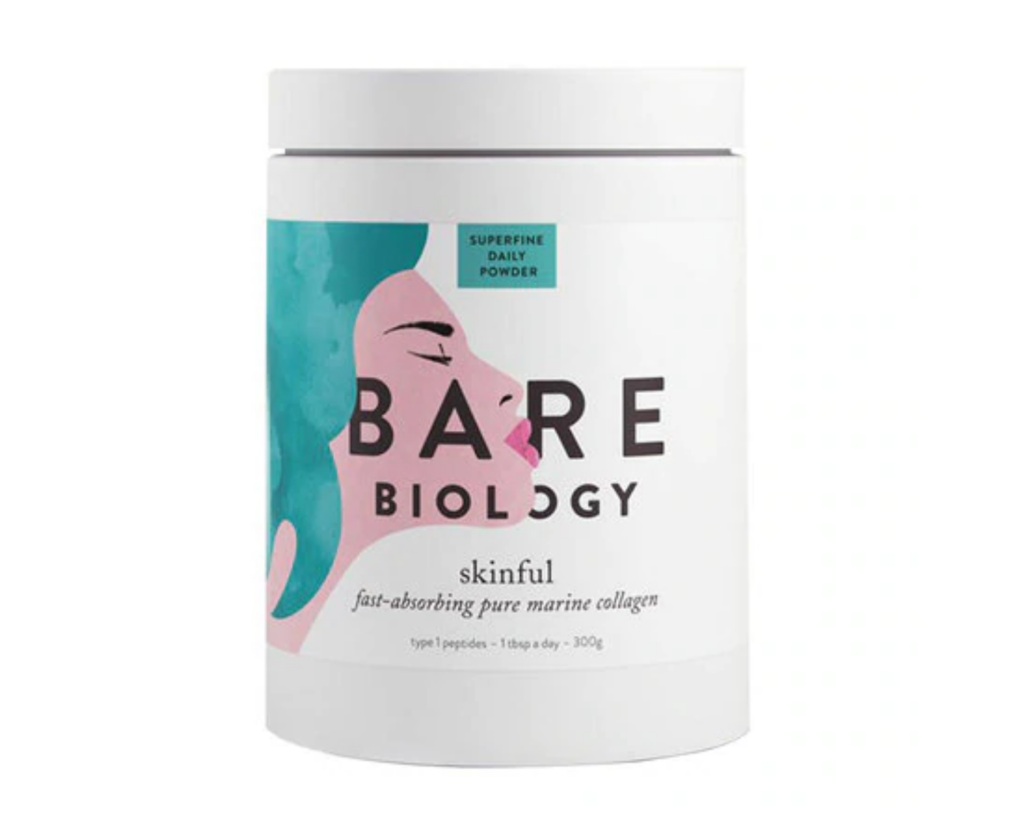
Bare Biology
This marine collagen from Bare Biology (link) can be added to a range of drinks or food. The peptides contained within this product can withstand temperatures of up to 300°C – meaning you can add collagen to home-baked banana bread!
It is the most desirable as it’s packed with antioxidants that help encourage the natural production.
Ancient and Brave: True Collagen
Odourless and highly absorbable, True Collagen contains key amino acids that will counteract the loss that starts in our 20s. You can mix this high quality blend into your morning coffees, smoothies, or tea – without tasting a thing!
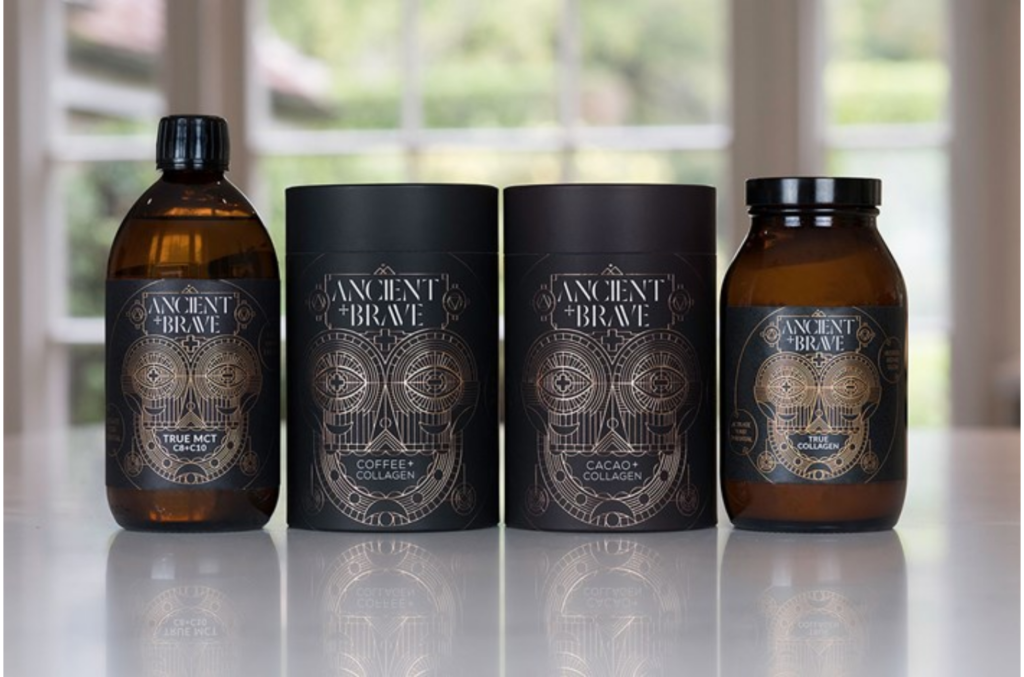

The Beauty Chef: Vegan Collagen
The beauty chef is one of the biggest brand names in beauty supplements. They focus on the importance of your gut in absorbing supplements that will benefit your skin. The Beauty Chef Boost contains the essential ingredients, vitamins and mineral that will boost your body’s natural production.
Pink Cloud Beauty
This supplement is the best collagen and bioten blend on the market. This blend by Pink Cloud Beauty (link) will maintain your skin, hair, and nail’s health. Also, the product is pink lemonade flavour, making it a joy to drink every day. The supplement also contains Vitamin E and C – keeping those wrinkles at bay!
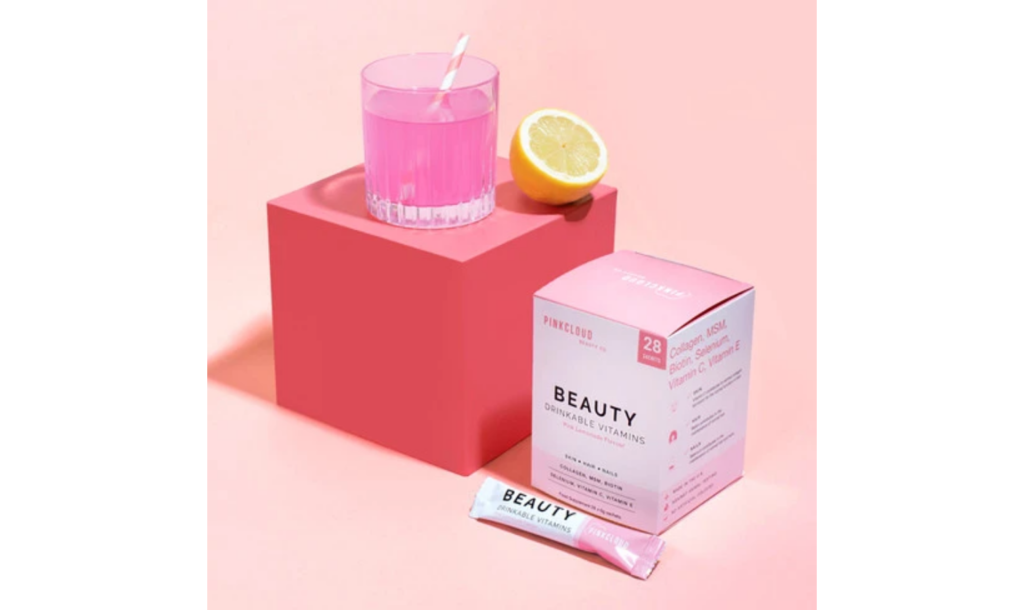
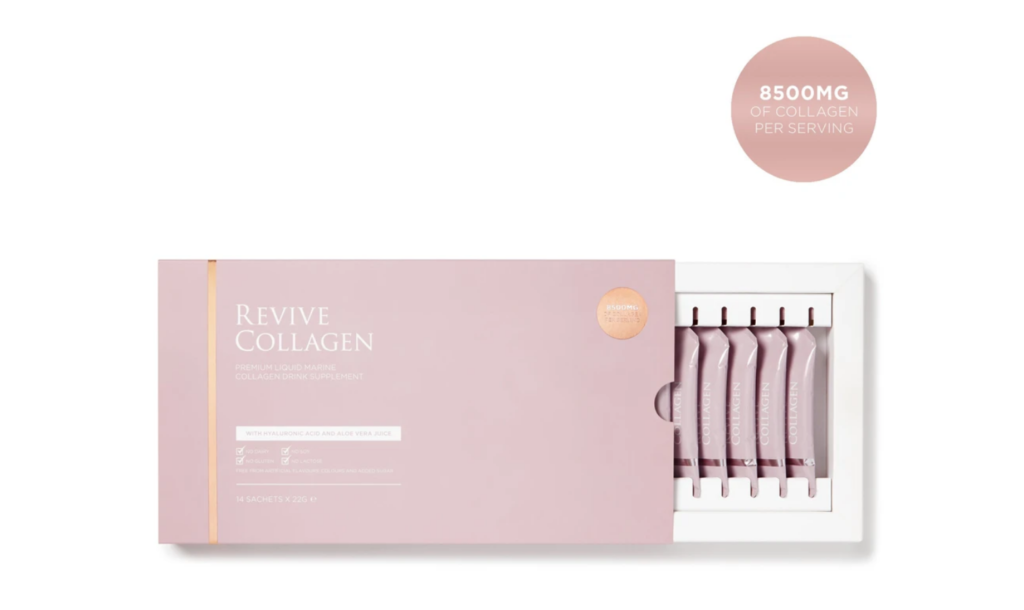
Revive Collagen
Revive uses Type 1 Hydrolyzed Marine Collagen. This is collected from ethically farmed fish skin which breaks down into small chains. Each Revive sachet contains this, making it different to the other products on the market as the hydrolysis process breaks it down into small, bioavailable component and is immediately available for absorption by the blood stream.
Take a look at some of the amazing brand we work with…





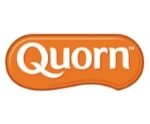
Fancy a chat about your recruitment needs?
